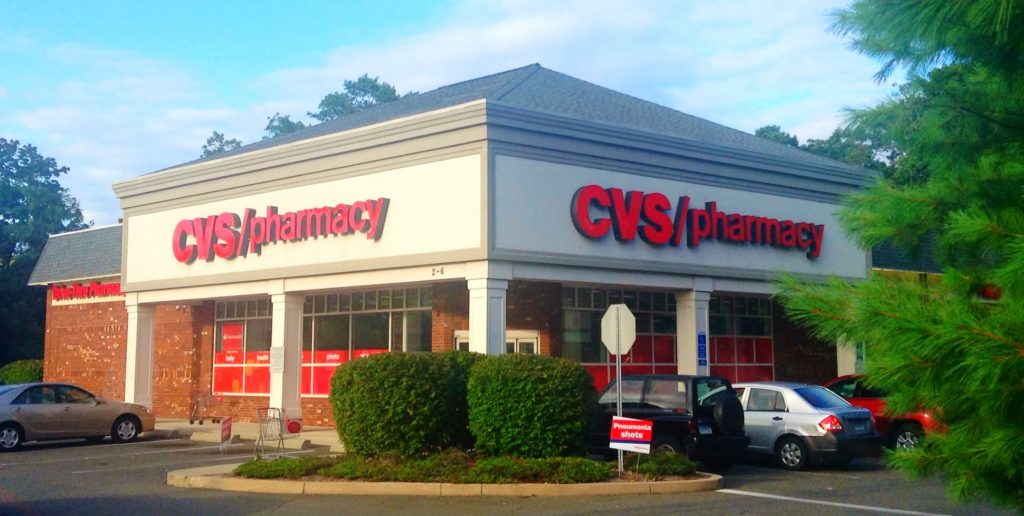Pharmacy chain giant CVS Health (NYSE: CVS) has agreed to acquire Aetna (NYSE: AET), the nation’s third-largest insurance provider in a transaction valued at $69 billion. The combined company could bolster home- and community-based (HCB) care by executing on its vision of easier access to more comprehensive health services at retail locations.
The merger of the two health care conglomerates is one of the biggest deals in heath care for the year; the transaction is expected to close in the second half of 2018, pending approvals, at which point CVS shareholders would own 78% of the new company, and Aetna shareholders will own the remaining 22%.
The combined company aims to create a platform for consumers and insurance beneficiaries to receive more health care services at CVS locations, which will serve as a “community-based health hub,” a press release states.
Genius Bar of health care
The new CVS, under the combined leadership, could include revamps to its more than 10,000 storefront locations—some of which already include Minute Clinic health care facilities—that could add more services, including vision, hearing, nutrition, beauty and medical equipment, in addition to the current wellness, clinical and pharmacy services.
“An entirely new health service offering available in many locations will function as a community‐based health hub dedicated to connecting the pathways needed to improve health and answering patients’ questions about their health conditions, as well as prescription drugs and health coverage,” the press release reads.
CVS currently employs more than 4,000 nursing professionals that provide in-clinic and home-based care across the country. CVS’ Minute Clinics provide basic health care, often at a low cost to consumers.
The Minute Clinic will be the center of the influx of new services added over time once the companies are merged.
“[Executives] talked about how the Minute Clinic will be the center of that strategy… of rolling out different health care services,” Brian Tanquilut, analyst at Jefferies, told Home Health Care News. “The idea is you make it convenient by having all these services available, and [consumers] are more inclined to come in. Having the Minute Clinic practitioner as the primary provider is the cheaper way of doing wellness for basic or primary care or family care.”
As part retail store and part health care provider, CVS will be “the Genius Bar” of accessible care, Tanquilut said. CVS plans to accomplish this by piloting different service lines over time—though executives were not clear on when they would start or how they would accomplish any specific goals.
CVS also owns Omnicare, a long-term care pharmacy provider to skilled nursing facilities (SNFs) and senior living communities, including assisted living. There are unlikely to be changes to that pharmacy services line, Tanquilut said.
Executives of both companies saw opportunities to expand health care services that could potentially encroach on the home health care space—including community-based care and in-home care. CVS/Aetna would take aim at tackling health care for those with chronic conditions, and CVS already provides home infusion care.
For example, diabetes patients can receive care through face-to-face counseling at a CVS store-based health hub and remote monitoring of their key indicators, such as blood glucose levels. Patients can also receive text messages to let them know when their when glucose levels deviate.
“Diabetes is an example, and that story goes on and on every day for chronic diseases beyond diabetes,” Larry Merlo, CVS Health president and CEO, said during a call with analysts Monday.
2018 implications
Furthermore, executives see “incredible potential for Medicare and Medicaid members, by providing them some of the high-touch interaction they need to navigate the complexities of the health care system,” they stated on the call.
Merlo said that baby boomers in Medicare Advantage could also be better served under the new company, as CVS and Aetna will merge their metrics and be more competitive in the market.
CVS and Aetna did not respond to press inquiries from Home Health Care News as of press time.
The deal is of major value—hitting $77 billion when Aetna’s debt is taken to account—and can also be considered a “defensive” move against Amazon (Nasdaq: AMZN), which has recently been building up its own health care service lines, including potential pharmacy and medical equipment offerings, according to various news reports. Amazon’s stock was down nearly 2.5% on Monday,
However, Amazon’s moves are likely not the prime motivator for CVS Health, which has been on the hunt for a sizable transaction since last year, according to Tanquilut.
“Amazon is on everyone’s minds,” he said. “In a way, it is a defensive play against Amazon, but I don’t think it was the whole motivation behind it.”
However, not everyone in home health may think this deal will have much impact.
“I don’t think people are putting two and two together, as it doesn’t necessarily have any implications for home health,” Tanquilut said. “I think this is validation of the home health pitch—that volumes are going to move to the home setting. This is where we are going.”
The size of the CVS transaction—coupled with Amazon’s increasing pressure as a potential new provider in the health care space—could have an influence in 2018.
“I think that this will get other companies to start thinking: ‘What does this mean for me?’” Tanquilut said. “It doesn’t necessarily accelerate anything, but it puts the conversation in place that you’ve got to evaluate your strategy. If this works the way these [executives] think it could, it could transform the health care delivery landscape. You want to be prepared for that as well.”
The share price for CVS was down more than 4.5%, reaching less than $72/share, as of end-of-day trading Monday; Aetna’s stock was down roughly 1.4%, at nearly $178/share.
Written by Amy Baxter




